The world of gymnastics is a captivating blend of artistry, strength, and incredible athleticism. Young gymnasts dedicate countless hours to honing their skills, pushing their bodies to perform gravity-defying feats.
To reach their full potential and maintain optimal health, proper gymnastics nutrition becomes a fundamental pillar of success.
Just like a finely tuned machine, a gymnast’s body requires the right fuel to perform at its peak, recover efficiently, and prevent injuries.
Macronutrients: Building the Foundation for Performance
Carbohydrates, protein, and fats – these macronutrients form the cornerstone of a gymnast’s diet. Each plays a specific role in fueling the body and supporting overall health.
1. Carbohydrates: The Engine’s Fuel Source
Carbohydrates are the primary source of energy for gymnasts. They are broken down into glucose, which fuels muscles during training and competition.
Complex carbohydrates, found in whole grains (brown rice, quinoa, whole-wheat bread), fruits (apples, bananas, berries), and vegetables (broccoli, carrots, spinach), provide sustained energy release due to their fiber content.
Fiber also promotes gut health, crucial for nutrient absorption and overall well-being.
Simple carbohydrates, like those found in sugary drinks and processed snacks, can provide a quick burst of energy, but their effects are short-lived.
These should be consumed in moderation, ideally as part of a balanced post-workout meal or snack to help replenish glycogen stores.
The recommended daily carbohydrate intake for gymnasts varies depending on age, activity level, and training intensity. However, a general guideline suggests carbohydrates should make up a significant portion (45-65%) of a gymnast’s total daily calorie intake.
2. Protein: Building and Repairing the Body’s Building Blocks
Protein is essential for muscle growth, repair, and recovery. It also plays a vital role in building and maintaining strong bones, which is particularly important in gymnastics nutrition for young gymnasts who are still developing.
The recommended daily protein intake for gymnasts is generally higher than for the average person, ranging from 1.2-2 grams per kilogram of body weight depending on training intensity.
High-quality protein sources like lean meats (chicken, fish), eggs, dairy products (milk, yogurt), and plant-based alternatives (beans, lentils, tofu) should be incorporated into a gymnast’s diet throughout the day.
Including protein at each meal and snack helps ensure a steady supply of amino acids, the building blocks of muscle tissue.
3. Fats: Not the Enemy, But a Crucial Ally
Fats have often been demonized, but healthy fats in gymnastics nutrition are essential for a gymnast’s diet. They provide a concentrated source of energy, aid in the absorption of certain vitamins, and contribute to hormone regulation.
Unsaturated fats, found in avocados, nuts (almonds, walnuts), and seeds (flaxseeds, chia seeds), are the preferred type.
These healthy fats play a role in brain function, which is crucial for maintaining focus and coordination during training.
Micronutrients: The Powerhouse of Performance
While macronutrients provide the body with energy and building blocks, micronutrients like vitamins and minerals are the unsung heroes that keep the engine running smoothly.
1. Vitamins and Minerals: The Essential Ingredients
Vitamins and minerals play a multitude of roles in the body, influencing energy production, nervous system function, and overall health. Vitamins are very important for any athlete,so as a person you need to make sure you eat healthy in order to remain healthy.
2. Calcium and Vitamin D:
These work together to build and maintain strong bones, crucial for preventing stress fractures and other injuries commonly seen in gymnasts.
Dairy products, leafy green vegetables, and fortified foods are good sources of calcium, while vitamin D can be obtained from sunlight exposure and certain fatty fish.
3. Iron:
Essential for oxygen transport throughout the body, iron deficiency can lead to fatigue and hinder performance. Lean red meat, poultry, fish, beans, and lentils are good sources of iron.
4. B Vitamins
These vitamins play a vital role in energy metabolism and nervous system function. Whole grains, legumes, and nuts are rich in B vitamins. Don’t play with your Nutritional life if you are involved in gymnastics, you need every nutrient in order to get your whole body to function properly and allow you to do what you want to do efficiently and effectively.
Hydration: The Lifeblood of Performance
As part of gymnastics nutrition, water is essential for every bodily function, and it’s even more crucial for athletes like gymnasts.
Dehydration can lead to fatigue, decreased muscle function, and impaired cognitive function – all detrimental to performance. Gymnasts should stay hydrated throughout the day, before, during, and after training sessions.
The exact amount of water needed can vary depending on individual factors like body weight and activity level, but a good starting point is to consume around half of your body weight in ounces of water daily.
Read More: Mental Training Techniques for Gymnasts
Nutritional Strategies for Different Training Phases
A gymnast’s nutritional needs can vary depending on the training phase. A gymnast’s nutritional needs can vary depending on the training phase. Here’s a breakdown of key strategies for different periods:
1. Pre-Workout Nutrition
The goal here is to fuel the body with easily digestible carbohydrates and a moderate amount of protein 1-2 hours before training. This provides sustained energy for the upcoming session and helps prevent muscle breakdown.
Suitable pre-workout meals or snacks might include:
- A banana with peanut butter
- Whole-wheat toast with avocado and egg
- Greek yogurt with berries and granola
- Sports drink (for longer training sessions)
2. Intra-Workout Nutrition
For extended training sessions (over 90 minutes), consuming small amounts of carbohydrates (sports drinks, gels) during the workout can help maintain energy levels and prevent a drop in blood sugar. However, this is less critical for shorter training sessions.
Suitable intra-workout meals or snacks might include:
- Gatorade and sports drinks
- Jelly beans, gum drops
- Fruit juice, lemonade, soda pop
- White bread
- Grapes, papaya, oranges, figs, plums, peaches, nectarines, apples, pears, plantains, watermelon, bananas, dried fruits, pineapple, mango
- Sweet Potatoes
3. Post-Workout Nutrition
The period following a training session is known as the “anabolic window” – a crucial time for maximizing muscle recovery and growth.
During this window (ideally within 30-60 minutes after training), the body is particularly receptive to nutrients.
Consuming a combination of carbohydrates and protein helps replenish glycogen stores and repair muscle tissue broken down during training.
Suitable post-workout meals or snacks could include:
- Grilled chicken with brown rice and roasted vegetables
- Salmon with quinoa and steamed asparagus
- Protein smoothie with fruit and spinach
- Chocolate milk (a good source of carbohydrates and protein)
Developing Healthy Eating Habits for Young Gymnasts
Building healthy eating habits from a young age sets the foundation for a gymnast’s long-term health and performance. Here are some key strategies:
- Portion Control: Understanding appropriate portion sizes is crucial for young gymnasts. Overeating can lead to weight gain and hinder performance, while undereating can leave them feeling sluggish and lacking energy. Visual aids like portion control plates or measuring cups can be helpful tools.
- Meal Planning and Preparation: Meal planning and preparation can help ensure gymnasts have access to healthy and nutritious options throughout the day. Involving them in the process can foster a sense of ownership and encourage positive eating habits.
- Role of Parents and Coaches: Parents and coaches play a crucial role in creating a supportive environment that promotes healthy eating habits and a positive body image for young gymnasts.
Fueling Performance and Building a Healthy Future
Proper nutrition is as vital to a gymnast’s success as their dedication and training.
By understanding the importance of macronutrients, micronutrients, and hydration, gymnasts, parents, and coaches can work together to create personalized nutrition plans that optimize performance, support overall health, and fuel a future of success in the sport.
For gymnasts with specific dietary needs or aiming for peak performance, consulting a registered dietitian specializing in sports nutrition can be beneficial.
They can create a customized plan that factors in individual needs, training intensity, and competition schedules.
Conclusion
Food is your fuel! By following these gymnastics nutrition tips, you can give your body the nutrients it craves to train hard, recover effectively, and perform at your peak.
Remember, a well-fueled body is a happy, healthy, and ultimately, a victorious gymnast!
FAQs
What’s the most important nutrient for gymnasts?
Carbohydrates are the primary source of energy for gymnasts. Choose complex carbs like whole grains, fruits, and vegetables for sustained energy throughout long training sessions and competitions.
Do gymnasts need to eat a lot of protein?
Yes! Protein is essential for building and repairing muscle tissue, crucial for recovery after intense training sessions. Lean protein sources like chicken, fish, beans, and lentils are great options.
What about fats? Aren’t they bad?
Healthy fats are actually beneficial gymnastics nutrition for gymnasts. They provide sustained energy, support brain function, and help with nutrient absorption. Include healthy fats like avocados, nuts, and seeds in your diet.
Should I snack before practice?
Absolutely! A light snack with carbs and protein 1-2 hours before practice can provide the energy you need to perform your best. Examples include yogurt with fruit and granola, or a peanut butter and banana sandwich.
What should I drink during practice?
Stay hydrated! Water is the best choice, but for longer practices, consider a sports drink to replenish electrolytes lost through sweat.
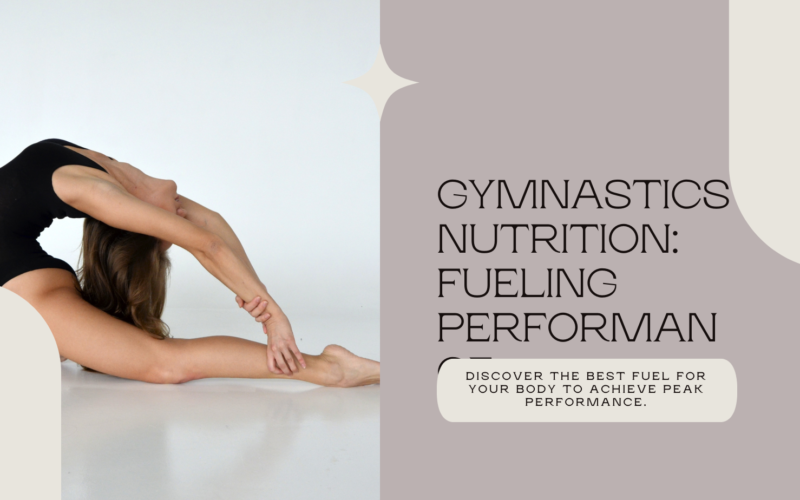
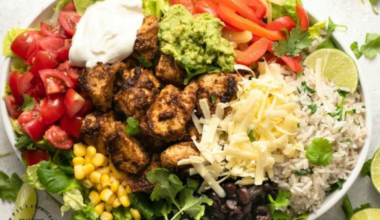
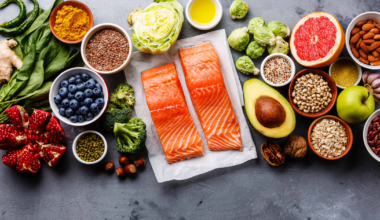
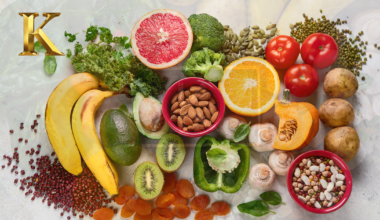
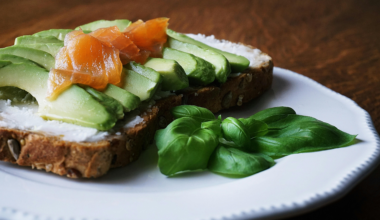
1 comment
NICE ONE